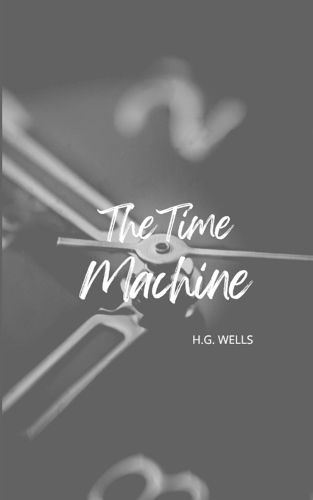Readings Newsletter
Become a Readings Member to make your shopping experience even easier.
Sign in or sign up for free!
You’re not far away from qualifying for FREE standard shipping within Australia
You’ve qualified for FREE standard shipping within Australia
The cart is loading…






This title is printed to order. This book may have been self-published. If so, we cannot guarantee the quality of the content. In the main most books will have gone through the editing process however some may not. We therefore suggest that you be aware of this before ordering this book. If in doubt check either the author or publisher’s details as we are unable to accept any returns unless they are faulty. Please contact us if you have any questions.
The Time Machine is a science fiction novel by H. G. Wells that explores the concept of time travel. The story follows an unnamed protagonist referred to as "the Time Traveller," who invents a machine that allows him to travel through time. The novel begins with a dinner party at the Time Traveller's home, where he shares his experiences and the details of his time-traveling adventures with a group of friends. According to the Time Traveller, he embarked on a journey to the distant future, witnessing the evolution of the Earth and its inhabitants. As he travels through time, the Time Traveller encounters different epochs, each marked by significant changes in the world. In the distant future, he arrives in a world divided into two species: the Eloi, a gentle and childlike race living above ground, and the Morlocks, a subterranean and more sinister species. The plot unfolds as the Time Traveller navigates the challenges of this future world, trying to understand its social structure and the relationship between the Eloi and the Morlocks. The novel delves into themes of evolution, societal decay, and the consequences of unchecked progress. The Time Machine is not just a thrilling adventure but also a philosophical exploration of the implications of time travel and the potential future of humanity. Wells' narrative skilfully combines scientific imagination with social commentary, making it a classic in the science fiction genre.
$9.00 standard shipping within Australia
FREE standard shipping within Australia for orders over $100.00
Express & International shipping calculated at checkout
This title is printed to order. This book may have been self-published. If so, we cannot guarantee the quality of the content. In the main most books will have gone through the editing process however some may not. We therefore suggest that you be aware of this before ordering this book. If in doubt check either the author or publisher’s details as we are unable to accept any returns unless they are faulty. Please contact us if you have any questions.
The Time Machine is a science fiction novel by H. G. Wells that explores the concept of time travel. The story follows an unnamed protagonist referred to as "the Time Traveller," who invents a machine that allows him to travel through time. The novel begins with a dinner party at the Time Traveller's home, where he shares his experiences and the details of his time-traveling adventures with a group of friends. According to the Time Traveller, he embarked on a journey to the distant future, witnessing the evolution of the Earth and its inhabitants. As he travels through time, the Time Traveller encounters different epochs, each marked by significant changes in the world. In the distant future, he arrives in a world divided into two species: the Eloi, a gentle and childlike race living above ground, and the Morlocks, a subterranean and more sinister species. The plot unfolds as the Time Traveller navigates the challenges of this future world, trying to understand its social structure and the relationship between the Eloi and the Morlocks. The novel delves into themes of evolution, societal decay, and the consequences of unchecked progress. The Time Machine is not just a thrilling adventure but also a philosophical exploration of the implications of time travel and the potential future of humanity. Wells' narrative skilfully combines scientific imagination with social commentary, making it a classic in the science fiction genre.